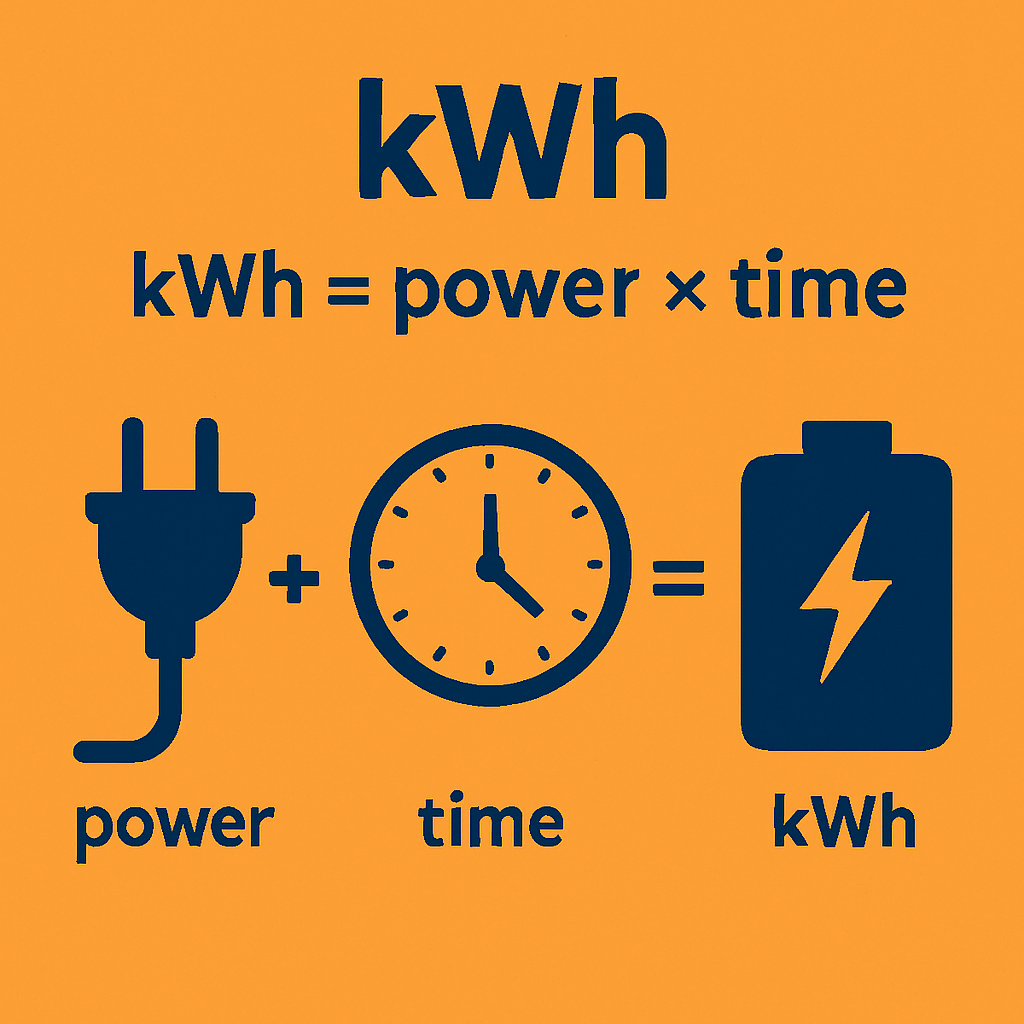What is a Kilowatt-Hour (kWh)? Meaning, Formula, and EV Applications

What is a Kilowatt-Hour (kWh)?
A kilowatt-hour (kWh) is a unit of energy that represents the consumption of one kilowatt (1,000 watts) of power over a one-hour period. It is commonly used to measure electricity usage and energy capacity in devices, homes, and vehicles — especially in electric vehicles (EVs) and battery systems.
Formula: kWh = power x Time
Example:
If an EV charger supplies 7 kW of power for 2 hours, it delivers: 7 kW x 2 hours = 14kWh.
Why kWh Matters
- Energy Billing: Utility companies charge consumers based on the number of kWh consumed.
- EV Range Estimation: EVs use kWh to estimate how far you can drive on a full charge.
- Battery Storage: Describes the capacity of battery systems in homes, EVs, and grid storage.
- Efficiency Comparison: Enables comparisons between energy efficiency of appliances or charging stations.
In EV Context
- EV Battery Capacity: Most electric car batteries range from 20 kWh (small EVs) to over 100 kWh (long-range models).
- Charger Output: Fast chargers may deliver power at rates of 50–350 kW, meaning they can supply large amounts of energy (in kWh) quickly.
Sample Use Cases:
Relation to Other Units
- 1 kWh = 1,000 watt-hours (Wh)
- 1 kWh ≈ 3.6 million joules (J)
- Not to be confused with kW (kilowatt), which is a unit of power, not energy.
Key Differences:
⚡ Callout: The kilowatt-hour (kWh) is more than just a unit — it’s the currency of energy. Whether you're charging an EV or powering a home, kWh tells you exactly how much electricity you're using.




